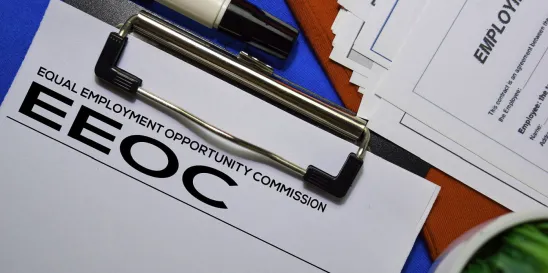In the wake of the Supreme Court’s decision invalidating affirmative action at America’s colleges and universities, a flurry of lawsuits challenging private employers’ diversity and inclusion programs have been filed around the country.
Meanwhile, with those suits making their way through the courts, the Equal Employment Opportunity Commission (EEOC) continues to remind us to remain focused on fostering inclusive work environments free from bias and harassment. In addition to issuing proposed enforcement guidance on harassment in the workplace (see this week’s companion article), the agency recently previewed its 2023 Fiscal Year End litigation trends.
The EEOC’s annual reports provide important details on charges filed, litigation pursued, and recoveries achieved by the agency each year. While the 2023 report is not yet finalized, the EEOC’s recent publication sheds some light on its litigation priorities, including details on the types of lawsuits the agency is pursuing and highlighting key focus areas that employers need to consider. The key takeaway: the EEOC is acting on its Strategic Enforcement Plan in the litigation it’s pursuing.
In its publication, the EEOC notes that it filed 143 new employment discrimination lawsuits in FY 2023, a greater than 50% increase over the prior year’s litigation statistics. An important focus, the agency notes, is on systemic discrimination lawsuits (it filed 25 in FY 2023, double the number in the past three years). The agency defines a “systemic” discrimination litigation as one that targets a “pattern or practice, policy and/or class … where the discrimination has broad impact on an industry, profession, company, or geographic location.”
This uptick in systemic lawsuits indicates the EEOC is pursuing class action employment litigation, like the nationwide age discrimination suit it settled earlier this month for $2.4 million. In that case, the defendant employer was accused of violating the Age Discrimination in Employment Act (ADEA) through its initiative to hire more millennials into its workforce, wherein it denied sales representative positions to applicants over 40 years old. Similar outcomes can be expected in the future as the EEOC’s systemic litigation initiatives continue.
The agency’s litigation efforts also focused on single- and multiple-employee non-systemic class suits, challenging barriers in recruiting and hiring, qualification standards, and inflexible workplace policies the EEOC alleges discriminate against individuals with disabilities. The report also notes that the agency’s 2023 litigation docket continued its focus on litigation involving the long-term impacts of COVID-19 on certain workers, pay equity, and combating unlawful harassment.
The wide array of litigation initiated by the EEOC in FY 2023 reminds us that employers should:
- Closely and regularly examine their compensation structures to ensure parity and implement transparent processes for promotions to counteract pay equity disparities
- Create a workplace culture that prioritizes diversity and inclusion, which is crucial in addressing gender- or race-based concerns
- Review, update, or implement robust anti-discrimination policies, provide diversity and inclusion training, and foster an environment that values employees’ differences
- Be mindful of stereotypes and biases associated with age and proactively address these within the workplace
- Encourage cross-generational collaboration and provide training on age inclusivity
- Prioritize flexibility and accessibility to ensure that employees with disabilities have the support they need to thrive in the workplace




 />i
/>i
